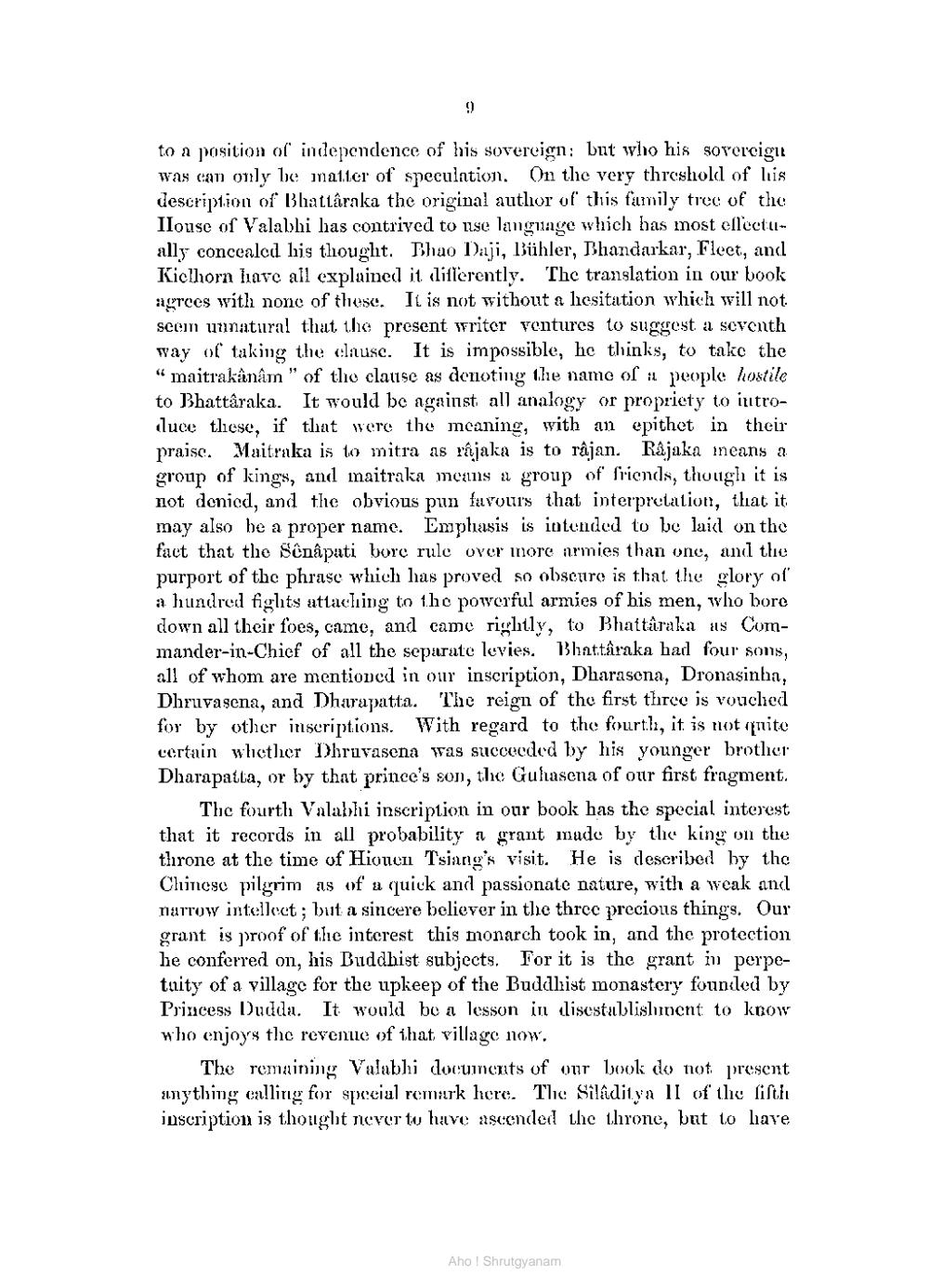________________
to a position of independence of his sovereign: but who his sovereign was can only be matter of speculation. On the very threshold of luis description of Bhattâraka the original author of this family tree of the Ilouse of Valabhi has contrived to use language which has most efl'ectulally concealed his thought. Thao Daji, Bühler, Bhandarkar, Fleet, ancl Kiclhorn lave all explained it ifferently. The translation in our book agrees with none of these. It is not without a hesitation which will not seem unnatural that the present writer ventures to suggest a seventh way of taking the clause. It is impossible, he thinks, to take the “maitrakânâm" of tho clause as denoting the name of : people hostile to Bhattâraka. It would be against all analogy or propriety to introduce tliese, if that were the meaning, with an epithet in their praisc. Muitraka is to mitra as rânjaka is to râjan. Rajaka ineans a group of kings, and inaitraka means a group of friends, though it is not denied, and the obvious pun favours that interpretation, that it may also be a proper name. Emphasis is intended to be laid on the fact that the Senapati bore rule over more armies than one, and the purport of the phrase which has proved so obscure is that the glory of a hundred fights attaching to the powerful armies of his men, who bore down all their foes, came, and came rightly, to Bhattâraka as Commander-in-Chief of all the separate lovies. Bhattaraka had four sons, all of whom are mentioned in our inscription, Dharasona, Dronasinha, Dhruvasena, and Dharapatta. The reign of the first three is vouched for by other inscriptions. With regard to the fourtlı, it is not quite certain whether Dhruvasena was succeeded by his younger brother Dharapatta, or by that prince's son, the Guhasena of our first fragment.
The fourth Valabhi inscription in our book has the special interest that it records in all probability a grant made by the king on the throne at the time of Hiouen Tsiang's visit. He is described by the Chinese pilgrim as of a quick and passionate nature, with a weak and narrow intellect; but a sincere believer in the three precious things. Our grant is proof of the interest this monarch took in, and the protection he conferred on, his Buddhist subjects. For it is the grant i perpetuity of a village for the upkeep of the Buddhist monastery foundled by Princess Dudda. It would be a lesson in disestablishment to know who enjoys the revenue of íhat village now.
The remaining Valabhi documents of our book do not present anything calling for speciul remaurk here. The Siladityn II of the fifth inscription is thought never to have ascended the throne, but to have
Aho I Shrutgyanam




